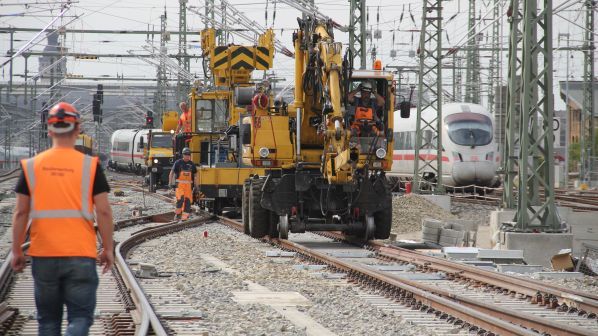THE European Commission (EC) has approved a new €215m German government support measure compensating German Rail (DB) for the impact of the Covid-19 crisis after finding this is in line with EU state aid rules.
The measure, which will take the form of an equity injection where shares are purchased to provide a company with the capital it needs, aims to compensate DB for the losses suffered by its subsidiaries, DB Network, DB Energy and DB Station & Service, between March 16 and May 31 2020 due to the Covid-19 pandemic and the restrictive measures which were put in place.
The EC has also approved under state aid rules a separate€313m German government scheme to support the long-distance passenger sector by reducing track access charges from June 1 to December 31 2022.
Earlier in July the EC approved two German support measures compensating the DB Long-Distance and DB Cargo subsidiaries for the impact of the pandemic. Support under those schemes took the form of a reduction in charges as a way of helping to reverse the post Covid-19 loss of market share.
The first measure, with an estimated budget of €2.1bn, aimed to relieve DB’s long-distance operator of approximately 98% of infrastructure charges paid from March 1 2020 to May 31 2022.
The second measure amended an existing aid scheme from 2018 supporting rail freight operators in Germany. With an estimated budget of €410m, the amendment increased support to approximately 98% of the infrastructure charges paid by rail freight operators from March 1 2020 to May 31 2021. The EC found these measures were beneficial for the environment, reducing road pollution and traffic congestion.
“The measures approved today will help rail freight and passenger operators in Germany weather the difficult situation caused by the Coronavirus outbreak,” says EC executive vice-president in charge of competition policy, Ms Margrethe Vestager. “The measures will contribute to maintaining the competitiveness of rail compared with other forms of transport, in line with the objectives of the European Green Deal.”
DB Network, DB Energy and DB Stations & Service all suffered losses due to the Covid-19 pandemic and the restrictive measures put in place to limit the spread of the virus. These had a direct, negative impact on rail freight and passenger traffic, which in turn led to a drop in demand for the three companies’ services and a consequent decline in their revenues.
The EC had already determined that the Covid-19 pandemic qualifies as an “exceptional occurrence” and so found that the proposed German measure meets the criteria and is also proportionate to make good the damage to these companies resulting from the health crisis.

